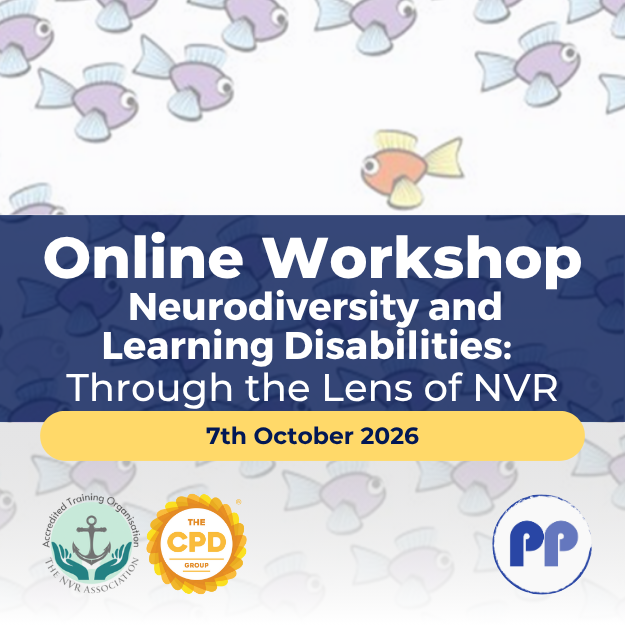Training in Organisational Consultancy using NLAA
We offer:
1 day introductory workshops
2 day seminars in NLAA
Advanced training modules
Training is provided directly to your organisation.
Coach:
Rosalind McCormick
For information about organisational consultancy, please contact us
Training in Organisational Consultancy using NLAA
The New Leadership Authority Approach*: A successful management approach for addressing complex barriers to productive communication
Why do you need the New Leadership Authority Approach?
Communication within organisations and between professionals makes the world go round in a productively beneficial manner. But when there is a shift away from healthy work place relationships between professionals, especially between a manager and individual staff members or a team, cooperation diminishes. The healthy characteristics of competition between professionals have transformed into unproductive patterns of behaviour.
Each of us is familiar with a continuum that has willing cooperation at one end, and begrudgingly toeing the line at the other. ‘Who’ is doing the asking can become more important in determining staff cooperation, than ‘what is necessary?’ or ‘What is required?’
When the stakes are high and status, money or personal likes and dislikes hit the top of the agenda, the conditions for poor self- awareness, low problem identification and solving, and increased power play tactics flourish, all driven by self-preservation.
The damage to communication grows slowly, and is not always easy to spot, yet the impact on staff productivity and staff retention is significant. In the absence of early identification, we come to depend on processes indicative of almost irrevocably broken relationships (e.g. mediation), when associated stress has led to periods of absence from work (e.g. Human Resources) or by engaging in the even more expensive and painful processes of performance management, legal action and staff replacement.
A communication problem in an organisation leads to a loss of focus on organisational priorities.
The New Leadership Authority Approach (NLAA) is underpinned by the knowledge that relationship and communication is central in the pursuit of cooperation and productivity. Organisations work best when each member of a team acts with inspired cooperation. NLAA seeks to make the aforementioned processes redundant through increasing skills, awareness and legitimate authority in current and future managers.
To sustain and grow your organisations’ staff strengths it necessary to track problems and address them, before they become an expensive exercise in damage reduction.
How does New Leadership Authority Approach bring about change?
New Leadership Authority Approach (NLAA) circumnavigates the established yet expensive routes to address management problems by refocusing manager behaviour through an established coaching process to increase presence, decrease escalatory behaviour and create productive communication. This will spotlight your managers’ skills and attention upon organisational priorities.
Case Study Example
Situation
When X was appointed into his first management post 18 months ago, he was considered to have a high degree of potential as a manager within the organisation.
His team consists of many experienced and motivated staff, and several for whom management changes, inflexible thinking and personality traits conspire to create barriers for successful communication. X has been given advice by a variety of well-meaning others, but has struggled to apply this to make positive changes or engage the cooperation of his whole team. X begins to take it personally. He becomes problem focused and frustrated with his team. He loses faith in his abilities and grows doubtful that he will be able to stay in management. He experiences stress and takes periods of sick leave. The team X manages begin to avoid him and make decisions without consultation. Higher management begin to lose faith in his original promise, and consider the options available to support or remove him.
Analysis
Due to high expectations of his first management post and awareness that he has been regarded highly by senior managers, X feels both alarm and frustration at the team challenges. He blames certain team members and engages in communication which reflects these negative feelings whilst maintaining a ‘professional veneer’. Advice from others makes him feel as if his problems should be easy to address and his failure to put them in place successfully leads to an increasing sense of helplessness. This sense of helplessness gains momentum and clouds X’s ability to problem solve. His concern that he will look weak leads him to withdraw from all support systems other than those which agree with his narrative of the problem. X becomes locked into a position which prevents him from gaining clarity, blocks his ability to act productively and serves only to decrease the rapport and regard between him and his team.
New Leadership Authority Approach Intervention Process
X is coached through a series of steps which assist him to find a neutral and objective perspective from which to focus afresh on organisational goals and objectives, and away from his current position of personal and professional discomfort. First, X is invited to identify what he considers the problems to be. He identifies the behaviours and attitudes he currently finds impossible to deal with or address. He is challenged to identify specific examples of such behaviour, and then to frankly discuss his responses. This begins the process of enabling X to understand the manner in which he is both losing his own presence and perpetuating the cycle of unproductive communication. This process sifts that which is merely irritating from what is in fact a priority to address, and leads to increased clarity on both his professional role and personal responsibilities in creating a team which functions with inspired cooperation and communication.
New Leadership Authority Approach Outcome
Through NALA Coaching X discovers how to refine his focus and identify true concerns and priorities. He learns how to anticipate problem behaviour and devise both the short and long term means to address them. X begins to learn how to grow his presence and demonstrate his original professional promise. His new found focus has an immediate impact on his whole team as he engages with his priorities. This produces a positive platform from which to grow his skills and those of his team.
How could the New Leadership Authority Approach (NLAA) help your business or organisation?
Packages Available:
Consultation
The New Leadership Authority Approach offers coaching to support individuals to establish productive management communication and generate inspired cooperation.
The NLAA reaches the parts that other intervention will not. We guarantee absolute discretion and confidentiality in order to ensure you are supported to return your organisation to a beacon of co- operation and productivity.
Cohort manager training
This group training is available for groups of up to 15 managers or senior executives. Training groups of managers will influence communication at their level, above and below. Group training has a high value impact as integration of the model is enhanced by a wider group ‘buy in’.
- Group NLAA focuses upon:
- Developing an understanding of the benefit of productive communication in the creation of inspired cooperation.
- The risks and opportunities of communication.
- Systemic team analysis
- Types of escalation – how to forecast and strategize
- The difference between cooperation, competition and conflict
- How presence can be lost and gained.
- Constructive and unconstructive sources of support.
Training is provided directly to your organisation.
We offer:
1 day introductory workshops
2 day seminars in NLAA
Advanced training modules.
Please contact us for more information and a chat about training possibilities.
Consider NLAA if any of the following apply to your business or organisation:
- Staff morale has been impacted by a merger or significant change.
- You wish to ensure your management trainees develop clear methods of communication, consistent models of constructive challenge and ensure focused development of their future teams.
- You have commissioned a variety of management training providers and continue to have mixed practice.
- You wish to increase manager awareness of their own developmental needs so as to enable them to inspire their respective teams.
- You can identify a manager who has high manager potential and has yet to gain the full cooperation of their team.
- You have inherited a manager whose reputation amongst a team creates apparently insurmountable barriers to full cooperation from the team.
- You have a team who have a high turnover of managers. You are appointing another manager and wish to increase their chances of success.
- You line manage a manager. You are frequently asked questions by member of a team which should go to this immediate manager.
- You can identify a manager who consistently avoids confronting unproductive team behaviour.
- You identify a manager who appears resistant to delegating to their team. You identify that this will have a counter productive impact on the team’s skills and on the manager’s health.
- You identify a team who are inexplicably unproductive.
For information about organisational consultancy, please email training@partnershipprojectsuk.com

Rosalind McCormick
Coach
Ros has successfully pioneered the use of NLAA in the UK within large organisations. She is one of the leading New Authority practitioners in this country.














